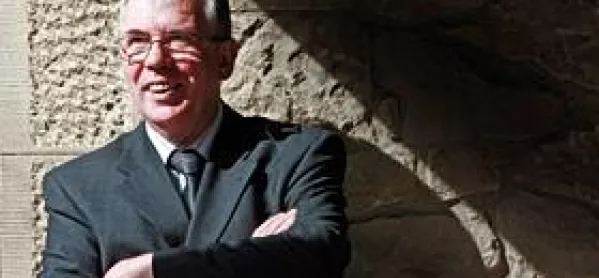Schools in Scotland must get rid of outmoded, top-down approaches to management and embrace a culture where constructive criticism is gratefully received, according to a senior Scottish educationalist.
Keir Bloomer, a former education director and chair of the Commission on School Reform, said current methods of school leadership and inspection were stifling innovation.
Schools enjoy considerable freedoms in terms of curriculum, pedagogy and exams, but do not make use of them because of top-down leadership and an emphasis on compliance, Mr Bloomer told a conference on the future of Scottish education in Edinburgh last week.
There was a widespread notion that teachers cannot do things without seeking permission, he said. The inspection regime is one of the most powerful inhibitors, Mr Bloomer said.
“Why are we talking about inspection in a contemporary setting?” he continued. “Superiors inspect inferiors; the very word is inappropriate to the culture we need to create.”
The problem with a strong hierarchy is that it leads to schools which are so alike that they cannot learn from each other, he said. And without learning, the Scottish education system could not make the leap from good to great.
“If the experience of every school is pretty similar to the experience of every other school, they can’t learn from each other,” Mr Bloomer told the conference. “We (the Commission) think that Scotland needs a system that has the capacity for learning in-built. It needs the richness of experience that comes from diversity.”
The Commission on School Reform made 37 recommendations in its report, By Diverse Means: Improving Scottish Education, published earlier this year.
A number emphasised the need to focus more resources on children in the most disadvantaged areas. The report also made it clear that if the Scottish education system were to become world-leading again, schools needed to be more diverse in nature and more autonomous.
Education secretary Michael Russell, who also spoke at the conference, said he was not an enemy of autonomy for schools and believed the issue was not just about structure but also a matter of mindset.
But Dunblane High headteacher Frank Lennon, who served on the commission, criticised the Scottish government’s reluctance to change the way in which schools were governed because of fears of “inequality and rogue headteachers”.
The current structure was failing to improve the lot of 20 per cent of Scottish young people who underachieve, he said. “We have transformed the curriculum and the assessment system. The only thing we have not touched in any way at all is school governance,” he added.
emma.seith@tess.co.uk.
Original headline: Leadership and inspection methods `stifle innovation’
Photo: Keir Bloomer. Photo credit: James Fraser




